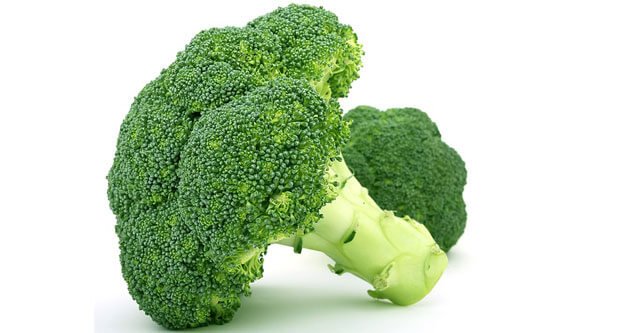Last Updated on April 26, 2021 by Dr Sharon Baisil MD
Living with diabetes is a recent issue faced by many people all across the globe. It is a pertinent problem of health that is increasing rapidly among all age groups. But keeping this chronic metabolic ailment under check is simple if you are aware of the right and the wrong.
Today we will tell you about one food item and help you learn about whether it is the right choice or not for diabetics. We are going to discuss Broccoli. It is a very popular vegetable and regarded as one of the healthiest ones.
But do you know about …
- Is broccoli good for diabetics?
- What is the Glycemic Index of Broccoli?
- What are its nutritional components?
- What are the benefits of eating broccoli?
- Are there any side effects of eating broccoli?
We will move on to answering these recurrent questions and clear your doubts about this veggie. But first, let us answer some questions of primary importance.
Here we go!
What is Broccoli?

Broccoli falls under the list of clean and green vegetables that are mainly included in the diets for their health and nutritional goodness on the body.
It is often a common ingredient in salads, fresh curries, pasta, noodles, as a variety of side dishes, etc. It adds a crunchy and mild flavor and scent to the dishes and also enriches the meal nutritionally.
The Broccoli is a cruciferous veggie belonging to the family of cabbages. It is dark green, has a flower head similar to that of a cauliflower, and a lighter green stalk.
It is regarded as a super-food because of its rich nutritional treasure. It is filled with good vitamins and minerals and has fewer numbers of calories. This is the ideal match for anyone looking for anything healthy to add to their maintained and controlled diets.
Weight-watchers can have it; one’s who are dieting, obese patients, diabetic individuals, fitness enthusiasts, etc. they can reduce many risks of developing various health symptoms and provide strength and nourishment to the body.
It is known to have causing preventing qualities, immunity strengthening powers, and the ability to aid the several bodily systems’ better functioning.
It is best to go for the firm and green broccoli instead of selecting loose, flimsy, stale, or pale green broccoli. It is necessary to store the broccoli well before using it as it can easily develop mold and go stale if not stored properly.
You can use broccoli in various ways and dishes, and it will retain its goodness and provide you with enough essential nourishment.
Now, let us answer some more important questions that you might be pondering about.
Is Broccoli good for Diabetics?

If you are a fan of this green veggie, then it is good news for you. Indeed, Broccoli is a great addition to one’s diabetic diet.
And if you are among the population who do not include broccoli in their meal plan, now is the best time to start! It is very beneficial for the diabetic body.
Broccolis have been regarded as one of the super-foods for diabetic individuals too. It is best because of its rich nutritional profile.
It has very low calories, a few carbohydrates, and many other vitamins and minerals. Moreover, it is also very rich in fiber. The many other antioxidants present in broccoli can improve diabetic health conditions in people.
It has been observed that eating broccoli is very helpful in reducing blood sugar levels. Many types of research and experiments have also been conducted, and the results have shown the effects of broccoli on the body to have caused a 10% decrease in the body’s blood sugar levels.
The presence of the nutrient – fiber in broccoli is essential for diabetic patients. Fiber helps to keep the metabolism process properly functional.
Broccoli is a must in a diabetic diet as it is low in starch. Diabetics avoid starchy vegetables as they are responsible for increasing the body’s blood sugar levels.
Therefore, when added to one’s meal, broccoli also helps in balancing out the total amount of carbohydrates on the plate. It also counts on other necessary micronutrients. This makes the meal a balanced and properly nutritive one.
The many minerals, vitamins, and antioxidants found in broccoli can minimize the symptoms of diabetes and reduce the risks of developing other health disorders.
In addition to these numerous good qualities, broccoli is also contained with Sulforaphane. This is a chemical that contributes to the stabilization of blood sugar levels. This is a chemical found mainly in cruciferous vegetables like cabbage, broccoli, spinach, etc.
Thus, broccoli is safe and rather recommended food for diabetics.
What is the Glycemic Index of Broccoli?

The value determined by the number of carbohydrates found in foods is measured and denoted by the Glycemic Index ranges. The Glycemic Index measures food safety based on their carbohydrate capacity and categorizes them accordingly, placed on a scale from 0 to 100.
The Glycemic Index is an important determiner for diabetic patients as they have to take care of their carbohydrate intake. The Glycemic classification of foods under three categories helps make a better and healthier choice as per your diabetic health condition.
Below is a table showing the three Glycemic Index ranges:
| Sl. No. | Glycemic Index categories | Glycemic Index ranges |
| 1. | Low Glycemic Index (safe for diabetics) | 0 to 55 |
| 2. | Medium Glycemic Index (safe if taken in controlled quantities) | 55 to 69 |
| 3. | High Glycemic Index (unsafe for diabetics) | From 70 and above |
Now, we can easily find out if broccoli is a safe addition to one’s diabetic meal or not based on its ranking.
As measured and found out, the Glycemic Index of Broccoli is 32. This is a very low Glycemic Index and within the safe margins of foods for diabetics.
Hence, it is clear that the consumption of Broccoli will not lead to any excess spikes in one’s blood sugar levels. It is healthy as well as safe to be included in a diabetic diet plan.
Until now, we have appreciated broccoli much for its rich nutritional profile. Now, let us have a good look at what the various nutrients found in broccoli are.
What is the Nutritional Composition of Broccoli?

Knowing the basic materials of what constitutes a good matter is a great way to focus on changing and adding good elements to your diet. Therefore, let us have a detailed look into what the nutrients of broccoli are to find out about its various benefits on health.
The table below shows the list of available nutrients in 100 grams of broccoli and their respective quantities.
| Sl. No. | Nutrients available in 100 g broccoli | Amount available |
| 1. | Calories | 34 |
| 2. | Carbohydrates – Dietary fibers – Sugars | 7 g – 3 g – 2 g |
| 3. | Fats | 0 g |
| 4. | Proteins | 2.82 g |
| 5. | Water | 89.3 g |
| 6. | Cholesterol | 0 mg |
| 7. | Potassium | 316 mg |
| 8. | Calcium | 47 mg |
| 9. | Manganese | 0.21 mg |
| 10. | Magnesium | 21 mg |
| 11. | Iron | 0.73 mg |
| 12. | Phosphorus | 66 mg |
| 13. | Zinc | 0.41 mg |
| 14. | Selenium | 2.5 mg |
| 15. | Choline | 18.7 mg |
| 16. | Sodium | 33 mg |
| 17. | Copper | 0.049 mg |
| 18. | Vitamin C | 89.2 µg |
| 19. | Vitamin A | 623 µg |
| 20. | Folate | 63 µg |
| 21. | Vitamin K | 101.6 µg |
| 22. | Vitamin E | 0.78 µg |
| 23. | Vitamin B6 | 0.175 µg |
| 24. | Vitamin B5 | 0.573 µg |
| 25. | Vitamin B1 | 0.071 µg |
| 26. | Vitamin B2 | 0.117 µg |
| 27. | Vitamin B3 | 0.639 µg |
Now you can observe that there are endless nutrients found in broccoli that can help you and your diabetic body.
Let us go into the details of what advantages are brought in by the consumption of broccoli.
What are the benefits of having Broccoli?

All this while, we talked about the presence of plenty of good vitamins, antioxidants, minerals, etc., in broccoli. But now, let us see how these nutrients can benefit us.
- Broccoli is said to reduce the risks of developing cancer-causing cells. The Sulforaphane, which gives broccoli its bitter taste, has the property to protect the body against cancer. Moreover, the reduced risks of forming cancer-causing cells in the body lead to a better immune system.
- Talking about the immune system, the availability of vitamin C is also great to keep the immune system strong.
- Vitamin C is also excellent for the skin due to its encouragement of collagen formation in the body. It helps keep away skin diseases, skin cancer risks, and other skin issues.
- The good amount of fiber in broccoli also helps in aiding a proper digestive process. It is responsible for keeping indigestion, constipation, and related issues away.
- The anti-inflammatory features of broccoli assist in reducing the risks of chronic diseases. It has a positive effect on protecting the body from arthritis, diabetes, etc.
- It is also great to keep away the manifestations of cardiovascular diseases, weakening bones, and other symptoms that are commonly seen among diabetic patients.
Are there any side effects on eating too much Broccoli?
There are not a lot of side effects caused due to the consumption of broccoli. They can, however, cause loose bowels or diarrhea due to fiber presence. They can also make one feel gassy at times, like all other cruciferous vegetables.
You can have them in good numbers without worrying about harming your health as the advantages outweigh the disadvantages.
References
- https://www.liebertpub.com/doi/abs/10.1089/jmf.2012.2559
- https://dl.acm.org/doi/abs/10.1145/1858171.1858219
- https://www.sciencedirect.com/science/article/abs/pii/S0168822712000101
- https://link.springer.com/article/10.1186/2251-6581-13-64
- https://www.tandfonline.com/doi/abs/10.3109/09637486.2012.665043
- https://www.jstage.jst.go.jp/article/jnsv/52/6/52_6_437/_article/-char/ja/
- https://www.ingentaconnect.com/content/ben/mrmc/2009/00000009/00000006/art00011
- https://www.sciencedirect.com/science/article/abs/pii/S1756464612000953
- https://www.ncbi.nlm.nih.gov/pmc/articles/PMC5758090/









